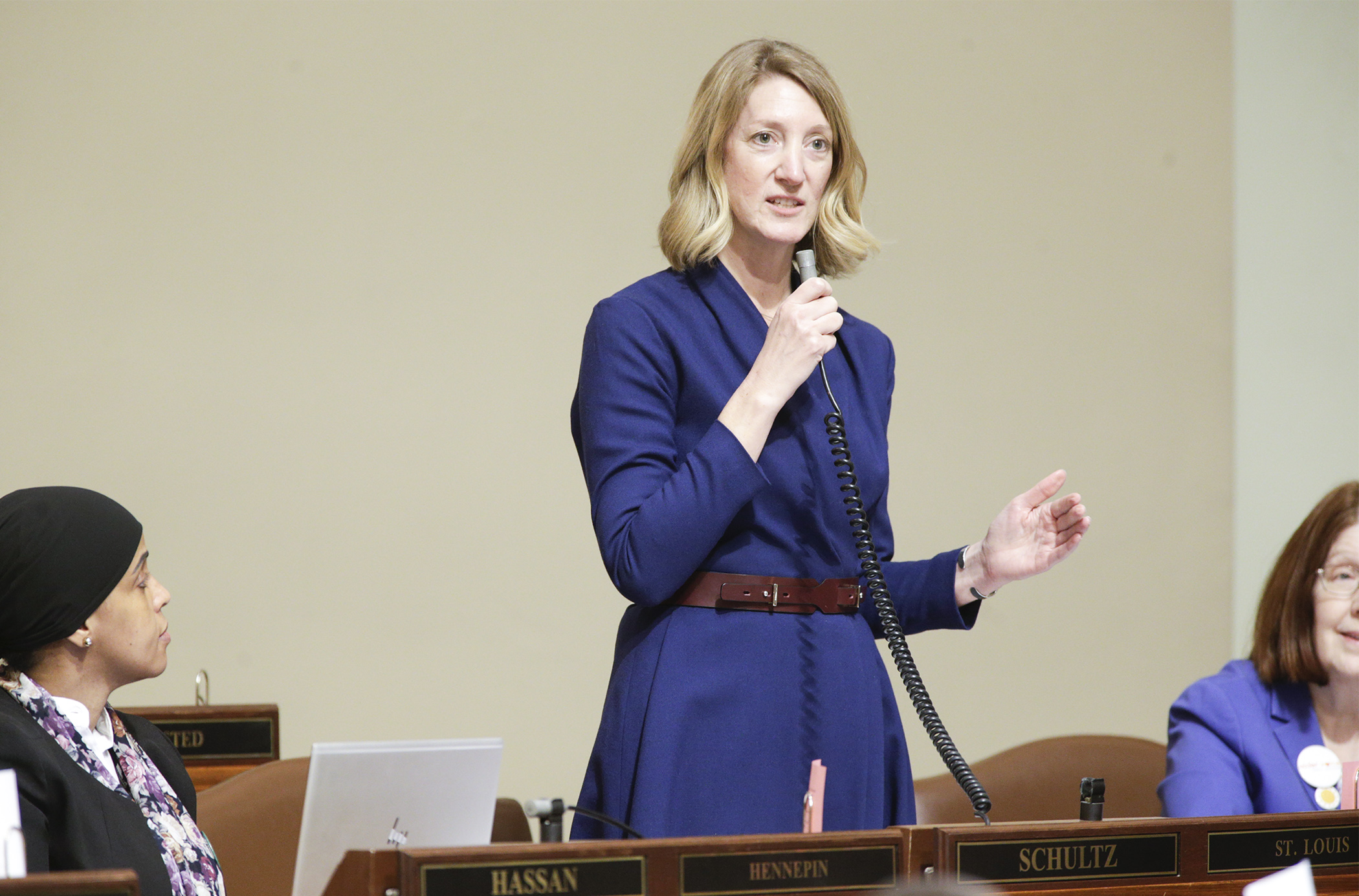Assisted living licensure bill passes House, despite minority's complaint it was ‘incomplete’

Minnesota could join the country’s other 49 states in requiring licensure for assisted living facilities, after the House passed HF90, as amended, 73-45 on Friday.
“There has been a lot of work on this, a lot of compromise. We cannot delay passing this bill this session,” said sponsor Rep. Jennifer Schultz (DFL-Duluth). “… People are dying unnecessarily in assisted living facilities. We need to do something soon. It cannot wait any longer.”
The bill now goes to the Senate, where Sen. Karin Housley (R-St. Mary’s Point) is the sponsor. Schultz expects the bill will go to a conference committee.
It would address a wide range of interconnected concerns regarding the safety of elderly people living in facilities that combine housing and services – including assisted living facilities with dementia care.
The licensure of assisted living facilities would allow the state to keep a closer eye on them and let the Department of Health to impose penalties, fines, and correction orders as needed to ensure resident safety.
Licensure would require additional training for staff involved in dementia care; minimum standards for services and procedures; resident evaluations and assessments; and background studies for the facilities’ officials, employees, contractors, and volunteers.
Variances would still be allowed for innovative services, though the Department of Health could impose conditions or limit the duration of these variances.
An article outlining resident rights and consumer protections includes protection against retaliation and the clear authority to use electronic monitoring devices – such as cameras – in certain facilities to ensure the well-being of their loved ones and deter abuse. Notification would have to be given to the facility, though some exceptions are made.
The timing of these notifications remain a point of contention, however, along with a right to private action, contract rights, payment source discrimination, and how deceptive marking prohibitions should apply to oral or written assertions.
“We all agree we need to take action this year,” said Rep. Glenn Gruenhagen (R-Glencoe). “But I’m concerned some of the provisions in the bill would hurt seniors by taking away choice and affordability options.”
Rep. Steve Drazkowski (R-Mazeppa), along with many other Republicans, objected that the bill was “irresponsible” and not ready for a vote. He unsuccessfully made a motion to return HF90 to the House Ways and Means Committee for further work.
These objections centered on two blank dollar amounts in a section of the bill adding license fees for assisted living facilities and assisted living facilities with dementia care. Fees are already in place for outpatient surgical centers, boarding care homes, and supervised living facilities.
“This is really bad legislating. Why don’t we know what number belongs in there and why haven’t we done our homework?” said House Minority Leader Kurt Daudt (R-Crown).
Schultz replied that the overall amount to be levied has been set and is included in spreadsheets related to the legislation. Negotiations with stakeholders are close regarding the specific division of these amounts, which she expects to be set in conference committee.
Republicans also objected to possible increased costs to providers.
Related Articles
Search Session Daily
Advanced Search OptionsPriority Dailies
Ways and Means Committee OKs proposed $512 million supplemental budget on party-line vote
By Mike Cook Meeting more needs or fiscal irresponsibility is one way to sum up the differences among the two parties on a supplemental spending package a year after a $72 billion state budg...
Meeting more needs or fiscal irresponsibility is one way to sum up the differences among the two parties on a supplemental spending package a year after a $72 billion state budg...
Minnesota’s projected budget surplus balloons to $3.7 billion, but fiscal pressure still looms
By Rob Hubbard Just as Minnesota has experienced a warmer winter than usual, so has the state’s budget outlook warmed over the past few months.
On Thursday, Minnesota Management and Budget...
Just as Minnesota has experienced a warmer winter than usual, so has the state’s budget outlook warmed over the past few months.
On Thursday, Minnesota Management and Budget...